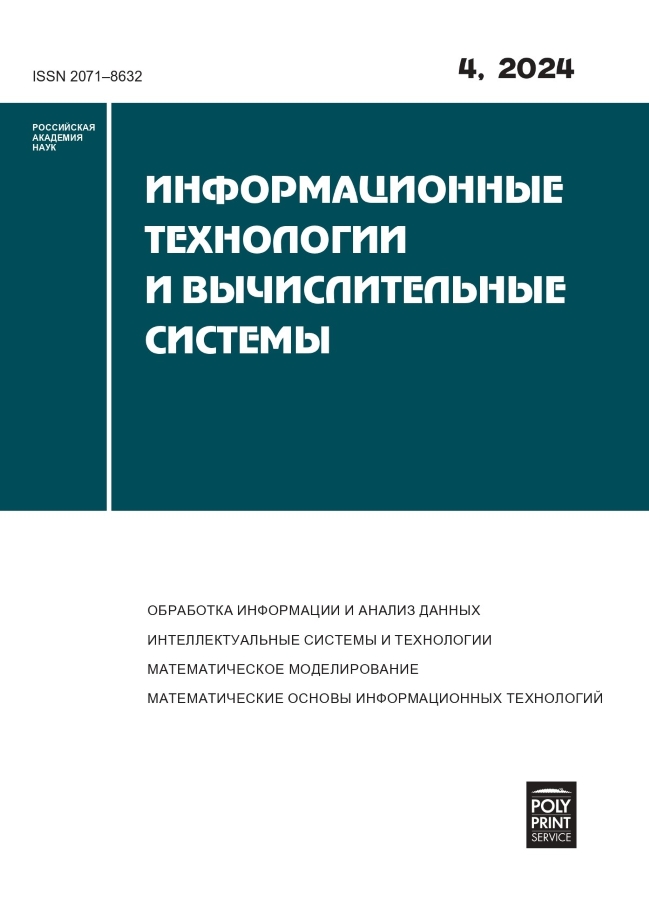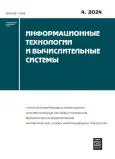Digital Twins and the Task of Ensuring Long(Term Keeping of Documents
- Authors: Solovyev A.V.1
-
Affiliations:
- Federal Research Center “Computer Science and Control” of the Russian Academy of Sciences
- Issue: No 4 (2024)
- Pages: 17-25
- Section: Information processing and data analysis
- URL: https://journals.rcsi.science/2071-8632/article/view/286405
- DOI: https://doi.org/10.14357/20718632240402
- EDN: https://elibrary.ru/UEJFZA
- ID: 286405
Cite item
Abstract
The article discusses the formulation of the problem of long-term keeping of documents and the use of digital twin technology. The problems and risks of ensuring the safety of documents, as well as the negative effects of destructive factors on stored documents, are considered. The problem of the safety of electronic documents is highlighted. An assumption is made about the possibility of using digital twin technologies to ensure long-term safety as part of the digital transformation of the economy and society. A formal formulation of the problem of ensuring long-term keeping of documents using digital twin technology is given. Prospects for further research to solve the problem are given.
About the authors
Alexandr V. Solovyev
Federal Research Center “Computer Science and Control” of the Russian Academy of Sciences
Author for correspondence.
Email: soloviev@isa.ru
Chief Researcher, Doctor of Technical Sciences
Russian Federation, MoscowReferences
- Mohamed, M. 2018. Challenges and benefits of industry 4.0: An overview. International Journal of Supply and Operations Management, 5(3): 256-265.
- Bai, Chunguang, et al. 2020. Industry 4.0 technologies assessment: A sustainability perspective. International journal of production economics. 229: 107776.
- Bartodziej, C.J. 2017. The Concept Industry 4.0; Springer Fachmedien Wiesbaden: Wiesbaden, Germany: 27–50.
- Blobel, B. 2020. Application of industry 4.0 concept to health care. Proceedings of the 17th International Conference on Wearable Micro and Nano Technologies for Personalized Health, iOS Press: Amsterdam, Netherlands, 273: 23.
- Schilz, A., Rehbein, M. 2022. Digitization of Cultural Heritage. Handbook Industry 4.0: Law, Technology, Society; Springer: Berlin, Heidelberg: 1193–1212.
- Federal Archival Agency (ROSARCHIV). 2022. Rules for the Organization of Storage, Acquisition, Accounting and Use of Documents of the Archival Fund of the Russian Federation and Other Archival Documents in State and Municipal Archives, Museums and Libraries, Scientific Organizations. Available online: https://archives.gov.ru/documents/rules/pravila-2020.shtml (accessed 09.01.2024).
- Privalov, V.F. 2003. Privalov Preservation of Paper Based Archival Documents: A Toolkit. Rosarchiv, VNIIDAD: Moscow, Russia: 112 p.
- Crespo, C. 1984. The Preservation and Restoration of Paper Records and Books: A RAMP Study with Guidelines. General Information Program and UNISIST, United Nations Educational, Scientific and Cultural Organization: 113 p.
- D.S. Kirillov, D.S., Barchukova, T.A. 2021 Digital twins as the basis for the digital transformation of industrial enterprises. Actual issues of economics and management. Smolensk, Magenta: 161-164.
- Botín-Sanabria, D.M., Mihaita, A.S.; Peimbert-García, R.E., Ramírez-Moreno, M.A., Ramírez-Mendoza, R.A., Lozoya-Santos, J.D.J. 2022. Digital twin technology challenges and applications: A comprehensive review. Remote Sens, 14: 1335.
- Wu, J., Yang, Y., Cheng, X.U.N., Zuo, H.; Cheng, Z. 2020. The development of digital twin technology review // Proceedings of the 2020 Chinese Automation Congress (CAC), Shanghai, China, 6–8 November 2020.
- Rudskoy, A.I. 2021. Digital industry based on digital twins. Devices, 249: 9–16.
- Rozhok, A.P., Zykova, K.I., Suschev, S.P., Revetria, R. 2021. The use of digital twin digital twin in the industrial sector. IOP Conference Series: Earth and Environmental Science. Innovative Technologies for Environmental Protection in the Modern World: 012032.
- Borovkov, A.I., Ryabov, Y.A., Kukushkin, K.V., Maruseva, V.M., Kulemin, V.Y. 2019. Digital twins and digital transformation of DIC enterprises. Bulletin of the East Siberian Open Academy. Russian Academy of Natural Sciences: Krasnoyarsk, Russia: 1–39.
- Jiang, Y., Yin, S., Li, K., Luo, H.; Kaynak, O. 2021. Industrial applications of digital twins. Philos. Trans. R. Soc. 379: 20200360.
- Deng, T., Keren, Z., Zuo-Jun, M.S. 2021. A systematic review of a digital twin city: A new pattern of urban governance towards smart cities. J. Manag. Sci. Eng. 6: 125–134.
- Alamir, H.S, Zargaryan, E.V. 2021. The concept of building a digital city twin. Information Technologies, System Analysis and Management (ITSAU): 340–343.
- Gorodishcheva, A.N., Kovalev, G.P., Gorodishchev, A.V. 2022. Modelling social processes as part of the smart digital twin paradigm. Materials of the XXVI International Scientific and Practical Conference dedicated to the memory of the General Designer of Rocket and Space Systems Academician M.F. Reshetnev: 209-211.
- Valiev, V.S., Ivanov, D.V., Shamaev, D.E., Khasanov, R.R. 2022. Creation of digital twins within the digital transformations of environmental monitoring. Russian Journal of Applied Ecology, 3(31): 29-33.
- Tishchenko, A.A. 2021. Building a collateral prtfolio management system from the point of view of the applicability of digital twin technology. Management, economics and law: problems, research, results: 212-217.
- Vorobev, A.V., Pilipenko, V.A., Vorobeva, G.R., Khristodulo, O.I. 2021. Development and application of problem-oriented digital twins for magnetic observatories and variation stations // Information and Control Systems, 2 (111): 60-71.
- Shohin Aheleroff, Xun Xu, Ray Y. Zhong, Yuqian Lu. 2021. Digital Twin as a Service (DTaaS) in Industry 4.0: An Architecture Reference Model. Advanced Engineering Informatics, 47(2): 101225. doi: 10.1016/j.aei.2020.101225.
- Shohin Aheleroff, Huiyue Huang, Xun Xu, Ray Y. Zhong. 2022. Toward sustainability and resilience with Industry 4.0 and Industry 5.0. Frontiers in Manufacturing Technology, 2. doi: 10.3389/fmtec.2022.951643.
- Solovyev, A.V. 2020. Long-Term Digital Documents Storage Technology. Lecture Notes in Electrical Engineering, 641: 901-911. doi: 10.1007/978-3-030-39225-3_97.
- Kudryaev, B.A., Galakhov V.V., Korneev I.K. et al. 1999. Organization Work With Documents. INFRA-M: Moscow, Russia, 575 p. ISBN 5-86225-757-8.
- Banasyukevich, B.D., Ustinov, V.A. 2000. Actual Scientific Problems of Ensuring the Preservation of Archival Documents. Domest. Arch. 1: 10–18.
- Shavyrova, M.V., Gribkov, D.N. 2019. Modern technologies for ensuring the safety of documents. Electronic Information Space for Science, Education, Culture, Proceedings of the Materials of the VI All-Russian Scientific and Practical Conference: 218–224.
- Murodov, S.N. 2022. The race continues for ultra-high-capacity storage media that will outlive our time. Modern Technologies: Topical Issues of Theory and Practice, Proceedings of the Collection of Articles of the II International Scientific and Practical Conference: 36–38.
- Privalov, V.F., Lubomirov, O.I. 1996. Problems of saving texts of documents created using printing computer devices: Analytical review. VNIIDAD, 18 p.
- The Government of the Russian Federation. 2017. PROGRAM “Digital Economy of the Russian Federation” approved by the order of at July 28, 2017. № 1632-r: 88.
Supplementary files










